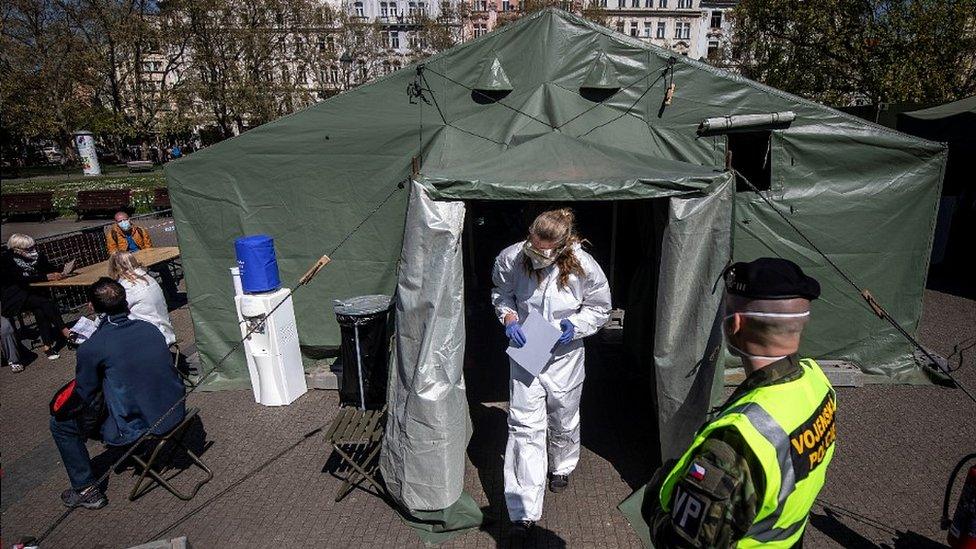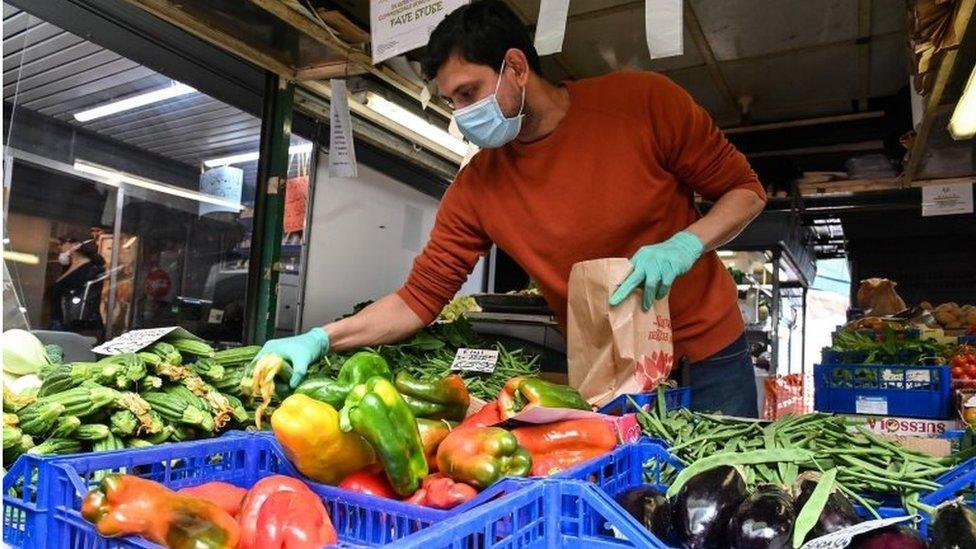Coronavirus: Czechs free to move again
- Published

A coronavirus testing point in central Prague
The Czech Republic's ban on free movement, imposed to curb coronavirus, has been lifted.
Czechs will be able to gather outside in groups of up to 10, the health ministry says, as the Covid-19 situation has improved. The country's lockdown began on 16 March.
They can leave home whenever they want, but social distancing rules and face masks remain compulsory.
From Monday Czechs will be able to go abroad again, under strict conditions.
EU citizens arriving on business, or university students, will be allowed in, but not other foreigners, the BBC's Rob Cameron reports from Prague.
And foreigners will have to show certification of a negative test result for coronavirus in the past four days.
In nearby Hungary, Prime Minister Viktor Orban has said his government would begin easing its coronavirus lockdown early next month, but has given few details.
His assumption of sweeping emergency powers, including rule by decree and for an unlimited period, has drawn international criticism.
Both countries have evaded the worst of the pandemic, registering just 210 and 250 deaths linked to Covid-19, respectively.
In Belgium a panel of experts is to set out plans for easing the lockdown, starting on 4 May, with a wider easing on 18 May.
Broadcaster RTBF says the first phase will open up DIY stores, bike shops and some other small businesses. Then on 18 May schools are expected to reopen, along with hairdressers and some other businesses. But leisure facilities, such as gyms and cinemas, will remain shut.

A SIMPLE GUIDE: How do I protect myself?
AVOIDING CONTACT: The rules on self-isolation and exercise
HOPE AND LOSS: Your coronavirus stories
VIDEO: The 20-second hand wash

Belgium's lockdown began on 12 March.
Belgian officials have reported another 190 deaths, including 97 in care homes, bringing the death toll to 6,679. That is the highest rate per capita in Europe, as Belgium's population is just 11 million. The country has more than 44,000 coronavirus cases.
More than half the fatalities have been in care homes. Comparisons with other European countries may be somewhat misleading, however, as some countries are believed to be under-reporting deaths.
You might also be interested in:
The mental health toll as Italians struggle to cope with Europe's strictest and longest-running lockdown
- Published23 April 2020

- Published18 April 2020
